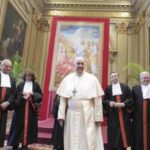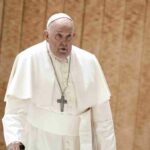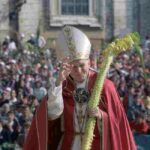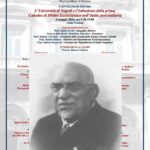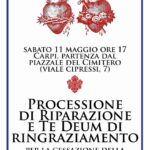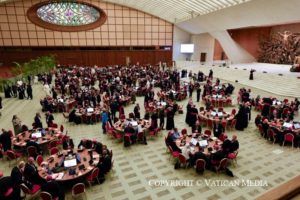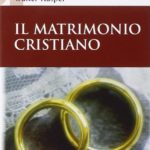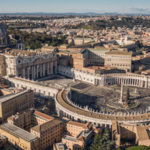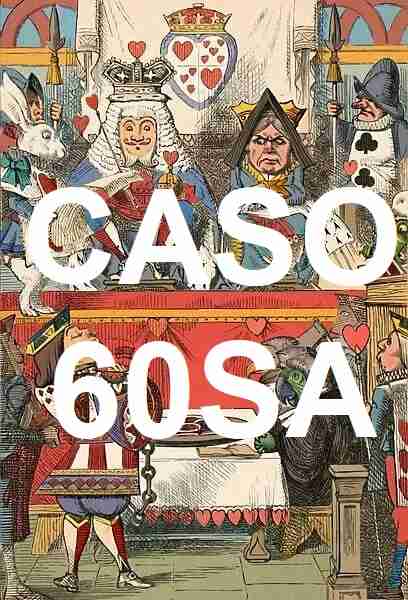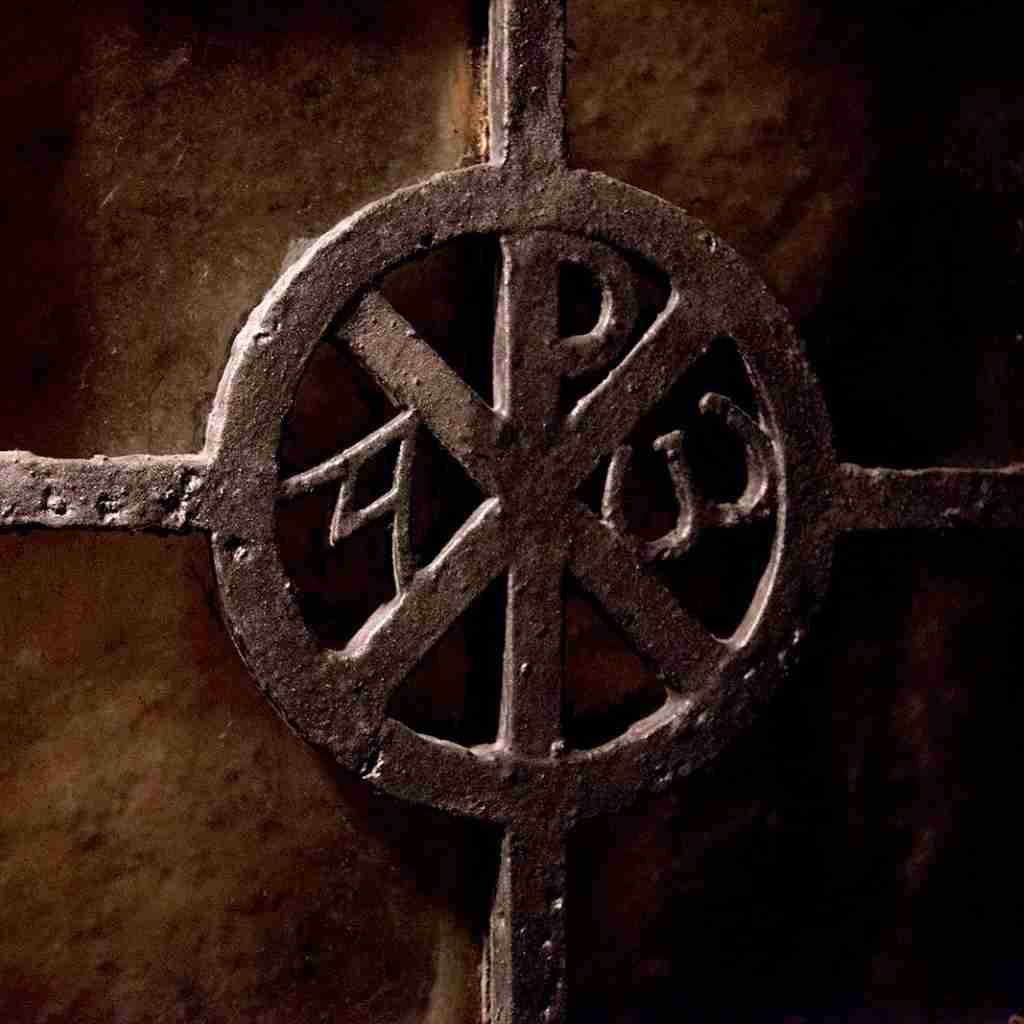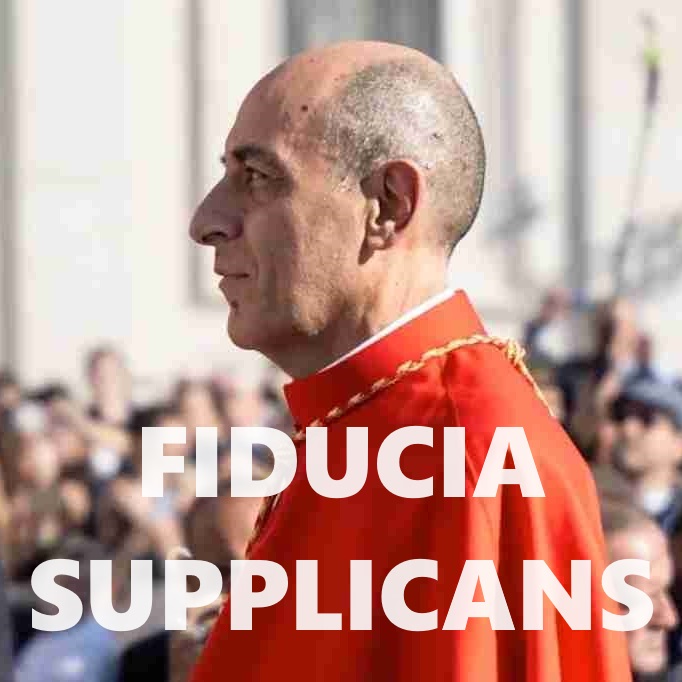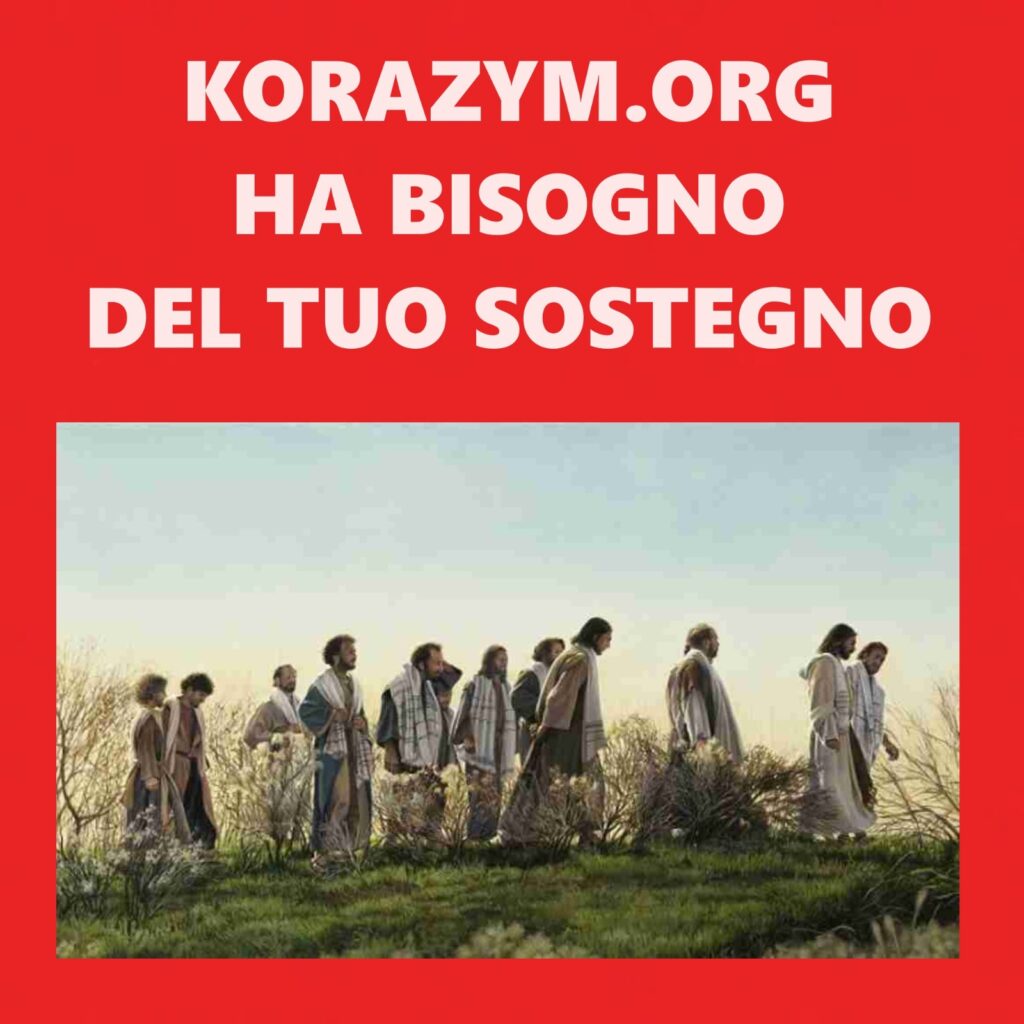Papa emerito Benedetto XVI: mi sono dimesso, ma ho mantenuto la “dimensione spirituale” del Papato
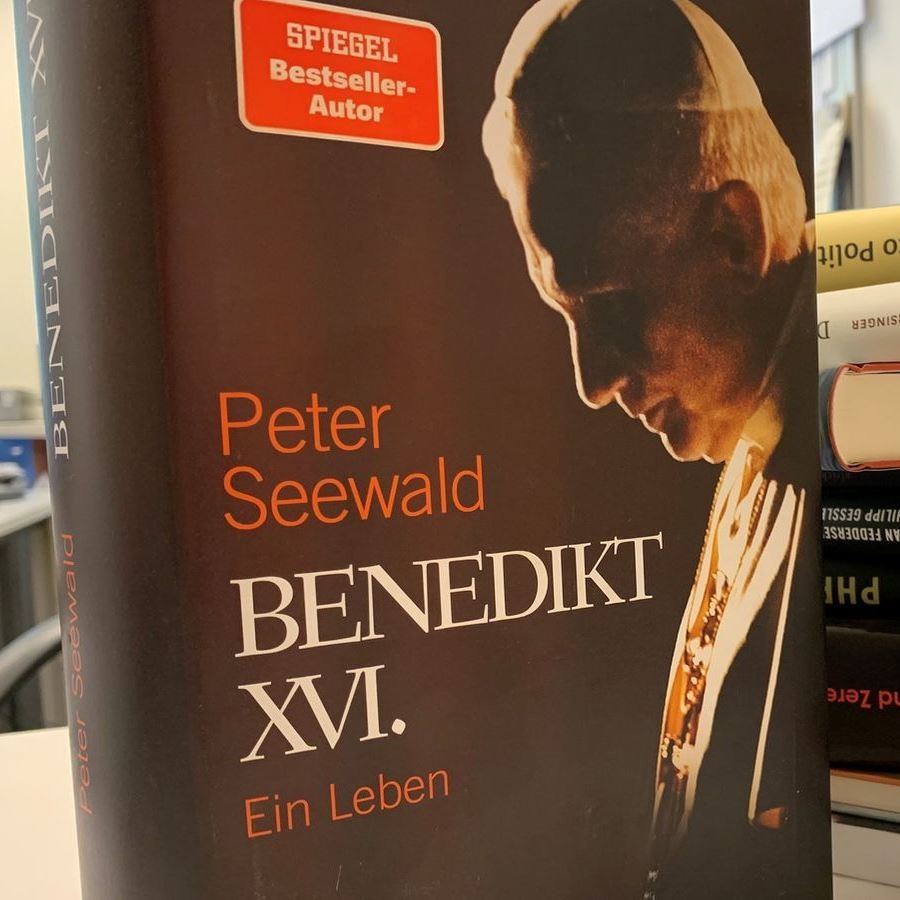
Benedetto XVI si considera ancora papa, ma in una dimensione spirituale. Joseph Ratzinger interviene nella vexata quaestio delle sue dimissioni e del suo ruolo dsa quando, l’11 febbraio del 2013, annunciò il suo ritiro dal ruolo attivo di governo della Chiesa. Lo fa nel libro “Ein Leben” (Una vita) del suo biografo Peter Seewald. Maike Hickson, di LifeSiteNews ha scritto ieri, 6 maggio 2020 un articolo su questo punto, citando il libro uscito il 4 maggio 2020 in Germania. Le domande a cui Benedetto XVI ha risposto datano dall’autunno 2018. Segue il testo originale in inglese, preceduto dalla traduzione italiana che Marco Tosatti ha pubblicato oggi, 7 maggio su Stilum Curiae.
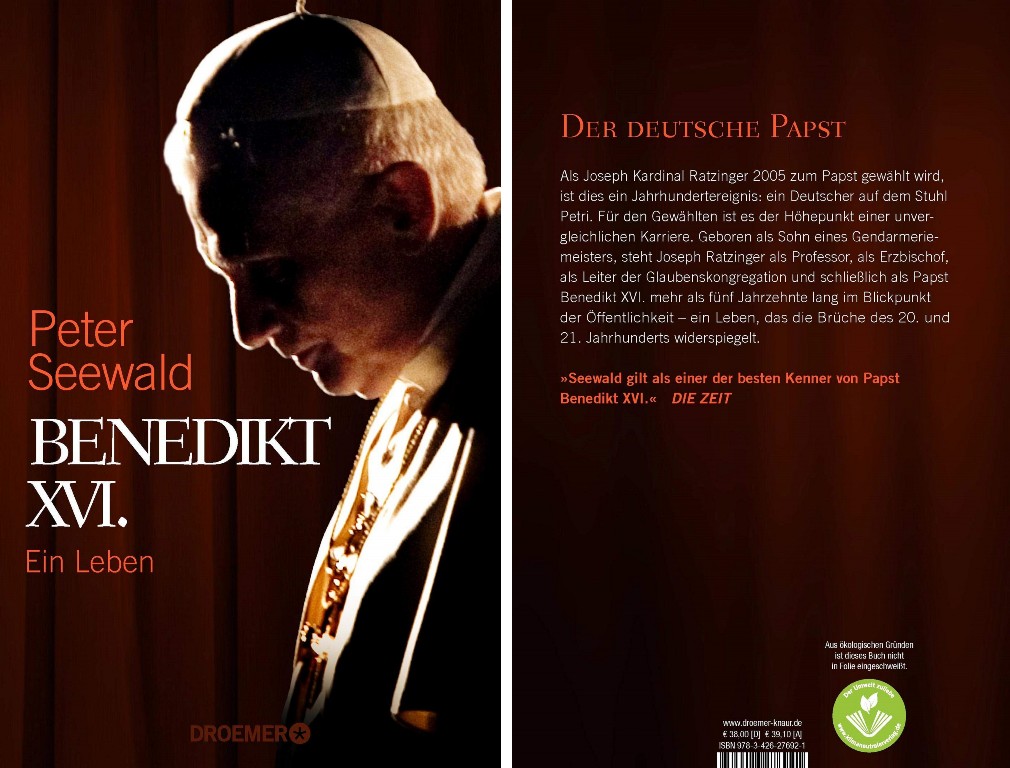
Una parte di queste domande riguardava il fatto che si era dimesso l’11 febbraio 2013 dopo quasi sette anni di pontificato. Peter Seewald fa notare a Benedetto XVI che ci sono storici della Chiesa che criticano il fatto che egli si definisca “Papa emerito”, poiché un tale titolo “non esiste, anche perché non ci sono due papi”. Dopo aver detto che egli stesso non capisce perché uno storico della Chiesa debba saperne più di chiunque altro di queste cose – in fondo “stanno studiando la storia della Chiesa” -, il Papa emerito Benedetto XVI cita il fatto che “fino alla fine del Concilio Vaticano II non c’erano state dimissioni da parte dei vescovi”.
Dopo l’introduzione della posizione di vescovo a riposo, il Papa emerito continua dicendo, è sorto il problema che “si può diventare vescovo solo in relazione a una specifica diocesi”, cioè ogni “consacrazione è sempre relativa” e “legata a una sede episcopale”. Per i vescovi ausiliari, ad esempio, la Chiesa ha scelto “sedi fittizie” come quelle dei Paesi ex cattolici del Nord Africa. Dato che con il numero crescente di vescovi in pensione, questi seggi fittizi si stavano rapidamente riempiendo, un vescovo tedesco – Simon Landersdorfer di Passau – ha appena deciso che sarebbe diventato semplicemente un “emerito di Passau””.
È qui che Benedetto XVI traccia poi un confronto con il papato. Perché un vescovo in pensione, aggiunge, “non ha più attivamente una sede episcopale, ma si trova ancora in un rapporto speciale come un ex vescovo con la sua sede”. Questo vescovo in pensione, però, “non diventa così un secondo vescovo della sua diocesi”, spiega Benedetto XVI. Un tale vescovo aveva “rinunciato completamente al suo ufficio, eppure il legame spirituale con la sua sede precedente veniva ora riconosciuto, anche come qualità giuridica”. Questo “nuovo rapporto con una sede” è “dato come una realtà, ma si colloca al di fuori della concreta sostanza giuridica dell’ufficio episcopale”. Allo stesso tempo, aggiunge il Papa emerito, il “legame spirituale” viene considerato come una “realtà”.
“Così – continua – non ci sono due vescovi, ma uno con un mandato spirituale, la cui essenza è servire la sua ex diocesi dall’interno, dal Signore, essendo presente e disponibile nella preghiera”.
“Non è concepibile che un tale concetto giuridico non possa essere applicato anche al vescovo di Roma”, afferma esplicitamente Benedetto XVI, chiarendo così che, secondo le sue stesse idee, egli ha completamente rinunciato al suo ufficio papale pur mantenendo una “dimensione spirituale” del suo ufficio.
Benedetto XVI porta un’altra analogia, basata questa volta sulla vita della famiglia, e avanza un confronto con il “cambiamento delle generazioni”, dove il padre di una famiglia rinuncia “al suo status giuridico”, pur mantenendo la sua “importanza umano-spirituale”, che rimane “fino alla morte”. Vale a dire che l’aspetto “funzionale” della paternità può cambiare, non la sua parte “ontologica”.
Qui, il Papa emerito si riferisce alle famiglie contadine bavaresi, dove il padre di una famiglia a un certo punto della sua vita consegna la casa colonica principale al figlio, soggiornando in una casetta più piccola sullo stesso terreno. Il figlio diventa allora responsabile di fornire al padre i suoi bisogni materiali, come il cibo. “Così – sostiene Benedetto XVI – viene data la sua indipendenza materiale, così come il passaggio dei diritti concreti al figlio”. Ciò significa: il lato spirituale della paternità rimane, mentre la situazione cambia per quanto riguarda i diritti e i doveri concreti”.
Nel maggio del 2016, l’Arcivescovo Georg Gänswein aveva tenuto un discorso, in cui parlava di Papa emerito Benedetto XVI e di un “ministero petrino ampliato”, una formulazione che ha suscitato un dibattito perché potrebbe indicare che Benedetto XVI non si è dimesso da tutte le diverse parti del papato.
“Dall’elezione del suo successore, Papa Francesco – il 13 marzo 2013 – non ci sono due Papi, ma di fatto un ministero allargato con un membro attivo e uno contemplativo. Per questo, Benedetto non ha rinunciato né al suo nome né alla talare bianca. Per questo, l’appellativo corretto con il quale bisogna rivolgersi a lui è ancora ‘Santità’”. Lo ha affermato Mons. Georg Gänswein il 20 maggio 2016, durante la presentazione del libro di don Roberto Regoli, “Oltre la crisi”, all’Università Gregoriana a Roma. Per l’Arcivescovo Gänswein Benedetto XVI “non si è ritirato in un monastero isolato, ma all’interno del Vaticano, come se avesse fatto solo un passo di lato per fare spazio al suo successore e a una nuova tappa della storia del Papato che egli, con quel passo, ha arricchito con la centralità della preghiera e della compassione posta nei Giardini vaticani”. Roberto Regoli ha invece affermato: “‘Oltre la crisi’ dà l’idea di un pontificato che si confronta su lungo periodo”. L’autore ha spiegato le difficoltà di giungere a un lavoro interpretativo solido e storicizzato data l’impossibilità di accedere ai documenti degli archivi vaticani. “Mi sono dovuto esercitare su una documentazione non archivistica ma accessibile”, ha puntualizzato: “i discorsi pubblici del papato, tutti i documenti di Benedetto XVI, quelli della curia, le interviste dei cardinali e quelle dei grandi protagonisti dell’epoca”.
Già nel 2013, spiegando la sua rinuncia al pubblico, Papa Benedetto XVI aveva poi affermato che “non ci può più essere un ritorno alla sfera privata”. La mia decisione di dimettermi dall’esercizio attivo del ministero non lo revoca. Non ritorno alla vita privata, a una vita di viaggi, incontri, ricevimenti, conferenze, ecc. Non abbandono la croce, ma rimango in modo nuovo al fianco del Signore crocifisso. Non ho più il potere d’ufficio per il governo della Chiesa, ma al servizio della preghiera rimango, per così dire, nel recinto di San Pietro. San Benedetto, di cui porto il nome da Papa, sarà un grande esempio per me in questo. Egli ci ha mostrato la via di una vita che, attiva o passiva, è completamente affidata all’opera di Dio”.
Benedetto XVI risponde anche alle critiche di chi vorrebbe che restasse completamente silenzioso di fronte a ciò che accade nella Chiesa.
“La pretesa che io intervenga costantemente nei dibattiti pubblici”, afferma anche lui, “è una malvagia distorsione della realtà”. Chi usa parole sue, come quelle sul capovolgimento di una nave – nata da San Gregorio Magno – per rilevare “un pericoloso intervento nel governo della Chiesa”, agli occhi di Benedetto XVI, “partecipa a una campagna contro di me che non ha nulla a che vedere con la verità”. In un altro contesto, il Papa cita soprattutto la “teologia tedesca”, che, in modo “stupido e malvagio”, ha interpretato le sue parole, cosicché “è meglio non parlarne”.”Preferisco non analizzare le vere ragioni per cui si vuole mettere a tacere la mia voce”, conclude Benedetto XVI.
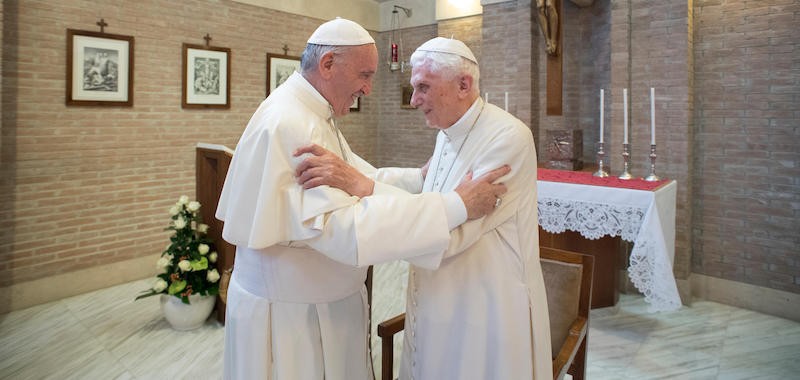
Pope Benedict: I resigned, but I kept ‘spiritual dimension’ of papacy
In a new biography, Pope Benedict speaks about the ‘spiritual dimension’ of the papacy ‘which is alone still my mandate’
by Maike Hickson
May 6, 2020 (LifeSiteNews) – In a new biography released on May 4, Pope Benedict makes some statements that highlight his own understanding of his resignation from the papacy. He speaks in this book about the “spiritual dimension…which is alone still my mandate.” He shows an understanding of his resignation from the papacy, according to which he gave up any “concrete legal powers” and any role of governance, but at the same time maintained a “spiritual mandate.”
Pope Benedict XVI answered, in the autumn of 2018, several written questions by his biographer Peter Seewald, which then were included in Seewald’s more than 1,000-page-long biography titled Benedict XVI: A Life. This book has been released in German today and will be published in English on November 17.
Part of these questions related to the fact that he had resigned on February 11, 2013 after nearly seven years being the Pope. Peter Seewald points out to Benedict that there are church historians who criticize the fact that he calls himself “Pope emeritus,” since such a title “does not exist, also since there are not two popes.” After first saying that he himself does not see why a church historian should know more about such matters than anybody else – after all they “are studying the history of the Church” – , Benedict quotes the fact that “up to the end of the Second Vatican Council, there also did not exist any resignation on the part of bishops.”
After the introduction of the position of a retired bishop, the retired Pope goes on to say, there arose the problem that “one can only become a bishop with relation to a specific diocese,” that is to say, each “consecration is always relative” and “connected with an episcopal seat.” For auxiliary bishops, for example, the Church chose “fictional seats” such as those of formerly Catholic countries in North Africa. Since with the increasing numbers of retiring bishops, these fictional seats were quickly filling up, one German bishop – Simon Landersdorfer of Passau – just decided he would become simply an ‘emeritus of Passau.’”
It is here that Pope Benedict then draws a comparison with the papacy. For, such a retired bishop, he adds, “does not anymore actively have an episcopal seat, but, still finds himself in a special relationship of a former bishop to his seat.” This retired bishop, however, thereby “does not become a second bishop of his diocese,” explains Benedict. Such a bishop had “fully given up his office, yet the spiritual connection with his former seat was now being acknowledged, also as a legal quality.” This “new relationship with a seat” is “given as a reality, but lies outside of the concrete legal substance of the episcopal office.” At the same time, adds the retired Pope, the “spiritual connection” is being regarded as a “reality.”
“Thus,” he continues, “there are not two bishops, but one with a spiritual mandate, whose essence it is to serve his former diocese from within, from the Lord, by being present and available in prayer.”
“It is not conceivable why such a legal concept should not also be applied to the bishop of Rome,” Pope Benedict explicitly states, thus making it clear that according to his own ideas, he fully resigned his papal office while maintaining a “spiritual dimension” of his office.
Later on in this interview at the end of the new Seewald-biography, Benedict comes back to speak about the fact that he does not wish to comment on the question of the dubia as presented by Cardinal Raymond Burke and his fellow cardinals regarding Amoris Laetitia, since this “would lead too much into the concrete area of the church governance and thereby would leave the spiritual dimension which alone is still my mandate.”
Pope Benedict then regrets that any of his statements as a retired Pope – such as his famous 2017 remark about the capsizing boat representing the Church – is being used by his critics as means to find “a confirmation for their slander.”
“The claim that I constantly intervene in public debates,” he also states, “is an evil distortion of reality.” Those who are using words of his, such as the ones about the capsizing of a ship – which stemmed from Saint Gregory the Great – , in order to detect “a dangerous intervention into the governance of the Church” are, in Benedict’s eyes, “participating in a campaign against me which has nothing to do with the truth.” In another context, the Pope mentions especially the “German theology,” which, in a “stupid and evil way,” interpreted his words, so that “it is better not to speak about it.”
“I prefer not to analyze the real reasons as to why one wishes to silence my voice,” Benedict XVI concludes.
Further discussing this matter of a “retired Pope” with Peter Seewald, Benedict makes a comparison with the “change of the generations,” where the father of a family gives up “his legal status,” while maintaining his “human-spiritual importance,” which remains “until death.” That is to say, the “functional” aspect of fatherhood can change, not his “ontological” part.
Here, the former Pope refers to Bavarian farming families, where the father of a family at some point in his life hands over the major farmhouse to his son while staying in a smaller cottage on the same land. The son then becomes responsible for providing the father with his material needs such as food. “Thus,” Benedict argues, “his material independence is given, just as the transition of the concrete rights to the son. That means: the spiritual side of the fatherhood remains, while the situation changes with regard to the concrete rights and duties.”
In May of 2016, Archbishop Georg Gänswein had given a speech, in which he spoke about Pope Benedict and an “expanded Petrine Ministry,” a formulation which caused a debate because it might indicate that Benedict did not resign all of the different parts of the papacy. He was later to correct that statement and since has insisted that there is only one Pope. Gänswein told LifeSite in 2019: “I have already cleared up the ‘misunderstanding’ several times.” “It makes no sense at all, no, even more, it is counterproductive to insist on this ‘misunderstanding’ and to quote me again and again. This is absurd and leads to self-harm [Selbstzerfleischung]. I have clearly said that there is only one Pope, one legitimately elected and incumbent Pope, and that is Francis.”
Already in 2013, when explaining his resignation to the public, Pope Benedict XVI then had stated that “there can no longer be a return to the private sphere. My decision to resign the active exercise of the ministry does not revoke this. I do not return to private life, to a life of travel, meetings, receptions, conferences, and so on. I am not abandoning the cross, but remaining in a new way at the side of the crucified Lord. I no longer bear the power of office for the governance of the Church, but in the service of prayer I remain, so to speak, in the enclosure of Saint Peter. Saint Benedict, whose name I bear as Pope, will be a great example for me in this. He showed us the way for a life which, whether active or passive, is completely given over to the work of God.”
LifeSite reached out to Monsignor Nicola Bux, a Vatican theologian and former collaborator of Pope Benedict XVI as a consulter to the Congregation for the Doctrine of the Faith, because he had made in the past some remarks about the “juridical validity of Pope Benedict XVI’s resignation.”
After LifeSite had summed up for him the new statement by Pope Benedict as it can be found in this new papal biography, Monsignor Bux answered, saying:
“In my opinion, one of the most problematic aspects would be the idea, implicit in Pope Ratzinger’s act, that the papacy is not a single and indivisible office, but, on the contrary, a divisible office that can be ‘unpacked’, in the sense that a Pope may choose to give up some functions, keeping for himself others, which would not then be passed on to his successor. A clearly erroneous idea.”
In further exchanges with Monsignor Bux, this Italian theologian added the following thoughts:
“The comparison of the papal office with the episcopal office in what regards the abdication of the papal office is not correct. The episcopal office is conferred by episcopal ordination or consecration, imprinting an indelible character on the soul of the bishop. Thus, while he may be relieved of a particular pastoral responsibility, he remains always a bishop. The papal office is conferred by the acceptance of the election to the See of Peter, that is, by an act of the will of the person elected, accepting the call to be the Vicar of Christ on earth. From the moment that the person elected consents he has the full jurisdiction of the Roman Pontiff.”
If the person elected is not a Bishop,” Monsignor Bux continued, “he must be immediately consecrated a Bishop because the papacy entails the exercise of the episcopal office, but he is Pope from the moment he consents to the election. If the same person, at a certain point, declares that he can no longer fulfill the call to be the Vicar of Christ on earth, he loses the papal office and returns to the condition in which he was before giving the consent to be the Vicar of Christ on earth.”
Here, the Italian theologian explained the fundamental principle that “the papacy is not conferred by sacramental grace. It does not imprint an indelible character upon the soul. To the one who consents to be Pope and perseveres in the consent, the grace is given, as Our Lord promised, to be ‘the perpetual and visible source and foundation of the unity both of the bishops and of the whole company of the faithful’ (Lumen Gentium, no. 23). Such a grace, by its very definition, is given to only one person at any given time.”
In conclusion, Monsignor Bux writes: “Our Lord gave Peter a single mandate – legal and spiritual at the same time – and asked the Apostles to support him through communion, cum et sub Petro (with and under Peter). Saint Paul explains it as: ‘sollicitudo omnium ecclesiarum’ (care of all churches). Therefore, there is no Petrine primacy to share, but two indissoluble principles in permanent communion with one another: the Petrine primacy and the episcopal team-work (collegiality).”
As becomes clear here, the scholarly discussion concerning Pope Benedict’s concept of his resignation is not yet closed.



